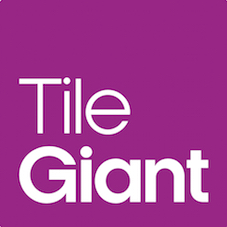UK DIY News
Consortium to bankroll cheap loans for 'green deal' energy efficiency drive
A number of blue chip names in banking, building and energy have signed a deal to create a unique not-for-profit financial company which will deliver billions of pounds of energy efficiency investment to residential and business premises.
The aim of the companies, which include power companies British Gas and E.ON, retailer B&Q and the banks HSBC and Goldman Sachs, is to ensure low-cost finance is available to the 14m homes the government hopes will be refitted by 2020 under its green deal starting in October 2012.
The green deal will enable homeowners and businesses to access loans for loft lagging, cavity wall insulation and other efficiency measures. It is a rule of the scheme that the savings on energy bills must be at least as big as the loan repayments.
Companies and banks had feared that if the loans were priced at personal loan rates, only basic efficiency measures could be funded without breaking the rule, limiting effectiveness of the scheme in cutting carbon emissions.
"The new company would put together as many loans as possible and very quickly give access to the capital markets," said Paul Davies, a senior partner at consultants PwC who is co-ordinating the founding of the Green Deal Finance Company.
While the 16-strong consortium includes rival firms, Davies said they had an interest in founding the green deal market. "They will collaborate first, then compete." He believed the move by such big companies to found a not-for-profit venture to build a new market is unique in Britain. Davies expected that the finance consortium would run a loan book of billions of pounds a year, rising over the next decade to £10bn a year. The green deal is a flagship policy for the government in its drive to cut the nation's carbon emissions and to reduce fuel poverty. A quarter of the UK's emissions come from heating and powering homes – many of them ageing and leaky – with a similar amount coming from industry and businesses. The UK has a legally binding commitment to fight climate change by cutting carbon usage.
Davies said the GDFC would allow the green deal loan rate to drop by three or four percentage points, perhaps from 9% to 6%. Each percentage point drop means a 7% increase in the energy efficiency refurbishments possible. Davies said he expected the green deal loan book to have a credit rating of at least AA. Another advantage of the consortium approach was that the loans would not appear on the companies' balance sheets.
The GDFC would be open to any company or local authority. Tesco and Marks & Spencer had been touted as companies with strong consumer brands that could help open up the green deal to homeowners, but they are not in the initial founding group. "They would be first on the list," said Davies.
Greg Barker, energy minister, told the Conservative Party conference on Sunday that the green deal was the biggest home improvement scheme since the second world war. "From day one people will see their energy bills go down."
The scale of the GFDC will depend on the take up of the Green deal from consumers, said Davies.
Critics have warned that incentives are insufficient to drive take up and meet the target of 14m homes by 2020, given that smaller existing schemes have had relatively few subscribers even when free. But Davies said "sticks and carrots" were being discussed by government, such as reducing stamp duty or council tax for homes and offices that take up the deal, or raising taxes for those who do not.
The consortium members are: British Gas, Carillion, Clifford Chance, E.ON, EDF Energy, Goldman Sachs, HSBC, Insta Group, Kingfisher, Linklaters, Lloyds Bank Corporate Markets, Mark Group, npower, PwC, RBC Capital Markets and SSE.
Source : Damian Carrington – The Guardian
www.guardian.co.uk/environment/2011/oct/02/green-deal-energy-saving-bankrolled-by-consortium?newsfeed=true
I find the news and articles they publish really useful and enjoy reading their views and commentary on the industry. It's the only source of quality, reliable information on our major customers and it's used regularly by myself and my team.








































